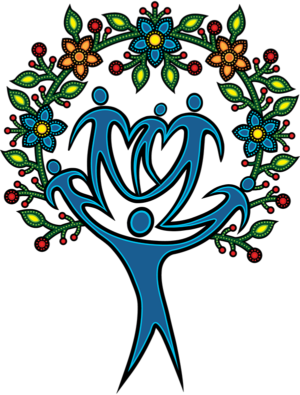Mentoring Basics
Mentors, both formal and informal, are caring adults who build a stronger community for all of us through the simple act of spending time with a child. Whether through a conversation or a game of catch, caring adults contribute to children’s well-being by engaging and supporting them. .
Mentors meet regularly with a child to provide support, advice, friendship, and constructive role modelling.
Mentoring builds strong and healthy brains, and connects young people to resources that engage them in activities and relationships to support their growth and continued well-being.
Science tells us that interactions with supportive adults build critical neural connections in the developing brain. Young people who have healthy, supportive relationships with adult mentors often do better in school, are better able to deal with bullies and stressful situations, and gain the social-emotional skills they need to be successful. Open and trusting relationships with mentors help young people gain a sense of belonging by building self-confidence as they learn new skills and passions.
Ready to explore mentoring opportunties in your community?
Why is Mentoring Important?
Mentoring is a powerful way of lending support to a young person by teaching skills, listening to their perspectives and creating a sense of belonging.
Research tells us that children need positive adult influences (like a mentor) in their lives. Children who engage with adults in developmentally supportive ways are:
- more likely to achieve high academic performance
- more likely to participate in extracurricular school activities
- less likely to have behaviour problems in school
- less likely to be bullied or victimized
Alberta’s success depends on all of our contributions to the well-being of children. Spending as little as an hour a week with a young person can make a difference to them and to Alberta’s future.
Research shows that being involved in a mentoring relationship has a positive impact on a young person’s school attendance, social skills, attitude, and behaviour with friends and family. Mentoring is also shown to play a role in preventing or reducing child/youth involvement in alcohol, drugs, and crime.
Research also shows that:
One of the most effective interventions for at-risk children is ensuring access to a caring and responsible adult role model (Satchwell, 2006).
Youth in care with mentoring relationships had higher educational attainment, less suicidal risk, less physical aggression, improved general health, and lower risk of contracting an STI (Ahrens, Dubois, Richardson, Fan & Lozano, 2008).
Mentored youth report fewer depressive symptoms, greater acceptance by their peers, more positive beliefs about their ability to succeed in school, and better grades in school (Herrera, DuBois & Grossman, 2013).
Mentoring is powerful. A small investment of time can have a positive, lifelong impact on a young person.
What are the Perks of Mentoring?
Alberta benefits from mentors’ involvement in the community and with our children.
Play a critical role in shaping tomorrow’s leaders as engaged citizens.
Make your community a better place.
Feel good about giving back by making a meaningful difference in the life of a young person.
Be part of a network with like-minded caring adults. Share experiences, resources, tools and advice with fellow mentors.
Add a meaningful experience to your life.
Broaden your horizons outside of your work.
Enhance your work and personal life with transferable skills like better communication, organization, leadership, and problem solving.
Mentoring results in healthy brain development, stronger communities, and a better Alberta.

“We acknowledge that we are on and support Mentoring for Youth in the traditional territories across Alberta of the many First Nations from Treaty 6,7,& 8, the Métis of the 8 Alberta Settlements, and Inuit people whose footsteps have marked these lands for centuries.”
